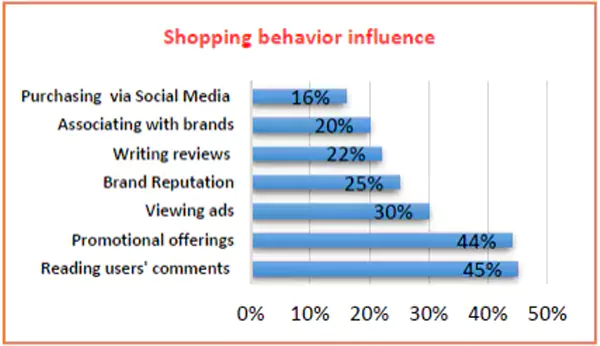There is no denying that e-commerce has emerged as one of the most important components of the global retail landscape in the twenty-first century.
Worldwide e-commerce transactions surpassed USD 4.2 trillion for the first time, and the isolating nature of the COVID-19 pandemic accelerated this even further.
As the nature and power of e-commerce continue to expand and grow, companies are always keen on looking for ways to better serve their customer base.
Social media is a great tool for building a Successful e-commerce business, here is an overview of the key points in the evolution of social commerce.
Building Brand Communities
Ever since the initial public launch of Facebook in 2006, the goal has always been to create and build communities online. While the purpose remained casually social for many years, companies began to see the potential in building their brands in these spaces, with platforms providing simple ways to connect with target audiences locally and worldwide.
To begin with, it would be fair to say that these online communities were not the most accessible spaces for all, as the brands were limited to the functions offered by the specific platforms. The opportunities for involvement for the visual and hearing impaired were very limited, but this has been a big area of improvement over time with the utilization of ALT-TEXT caption and social media videos and photos. Making this extra effort has helped connect brands with more potential customers.
It is estimated that 70% of consumers check reviews before making an online purchase, which is a testament to just how important the community around any specific company has become in 21st-century commerce. Your products and services will feel more human and contain more user-generated content if your brand community is stronger.
Influencer Marketing
Another huge development in the evolution of social and e-commerce is the presence and power that influencer marketing has in the modern landscape. ‘Influencers’ are still a relatively new phenomenon, but the select group of high-profile online figures have quickly established themselves as the gatekeepers of potentially huge customer bases.
You only need to look at the value of Instagram and YouTube accounts for sale on Fameswap to understand what a mention of your brand might generate.
If you are planning on venturing down the influencer path as part of your e-commerce business plan, then make sure to do your research on the individuals you have in mind. Do their goals and values align with yours? Do they have the appropriate following for your business?
Popular influencers will have their demands and fees for partnerships, and you can use FameAudit to determine if the influencer has the community and audience that meets your target demographic.
DID YOU KNOW?
More than 70% of online shoppers will use social media to recommend the brands they purchase from.
Marketplaces and Shops
The development of marketplace integration within the various social media apps and websites made e-commerce a much more streamlined experience than in previous years.
With the addition of in-app purchases and things like easy-to-scan QR codes, the relationship between a social media account and a seamless transition to an e-commerce transaction has never been so effective. Impulse buying is at an all-time high, and the draw of social media ads and tools has been at the forefront of this.
Even the media giant YouTube has stepped on this bandwagon by integrating with e-commerce platforms like Amazon to allow its content creators to showcase or promote a product by either displaying links through cards or showing them in the video description.
Online Markets and Websites
Many established brands have started making use of online e-commerce platforms and also sell their products in their e-shops. This helps them easily ship to customers quickly and also in some cases save costs related to warehousing and storage.
Selling on an e-commerce platform helps in easily shareable products, like suppose a customer likes a particular product from a brand, they can easily share that product with their friends and family via social media with just a single click.

Targeted Marketing
Selling or marketing products on an e-commerce platform also comes with many advantages. Many e-commerce platforms offer pre-sale promotions services, where a business may promote a new product before launch to its preferred customers.
Today, many smartphone brands use this feature to get a pre-launch sale started. With this, they can confirm beforehand how many units they would have to manufacture to make their sales goals for the product life cycle.
Customer Retention and Brand Image Hype
In today’s competitive market in the online sector, it is seen as a necessity for a brand/company/manufacturer to have a social media account where they may promote their new and upcoming products, keep connecting with their customers to keep their brand image or receive and address consumer complaints.
This helps in creating the image of a trusted brand among customers and in some cases, some may also promote a product they once purchased to their peers.
Conclusion
In the online world, social media and e-commerce are interwoven, and one may not survive without the other. From a business standpoint, companies and manufacturers may need social media to promote products, address grievances, and receive sales through the platforms.
On the other hand, social media is also dependent on e-commerce in the sense that it requires more people to use it in their everyday lives. It plays an integral part in connecting businesses to customers through its massive user base.
FAQs
Ans: Companies are including multiple features like purchasing options on their social media profiles as a result of the growing significance of social media in e-commerce. For example, you can find multiple Instagram stores of different businesses.
Ans: While inorganic marketing can produce abrupt spikes in visibility and user acquisition, organic marketing concentrates on building a strong foundation.
Ans: All content posted on your social media channels without receiving paid assistance is referred to as organic social media.








